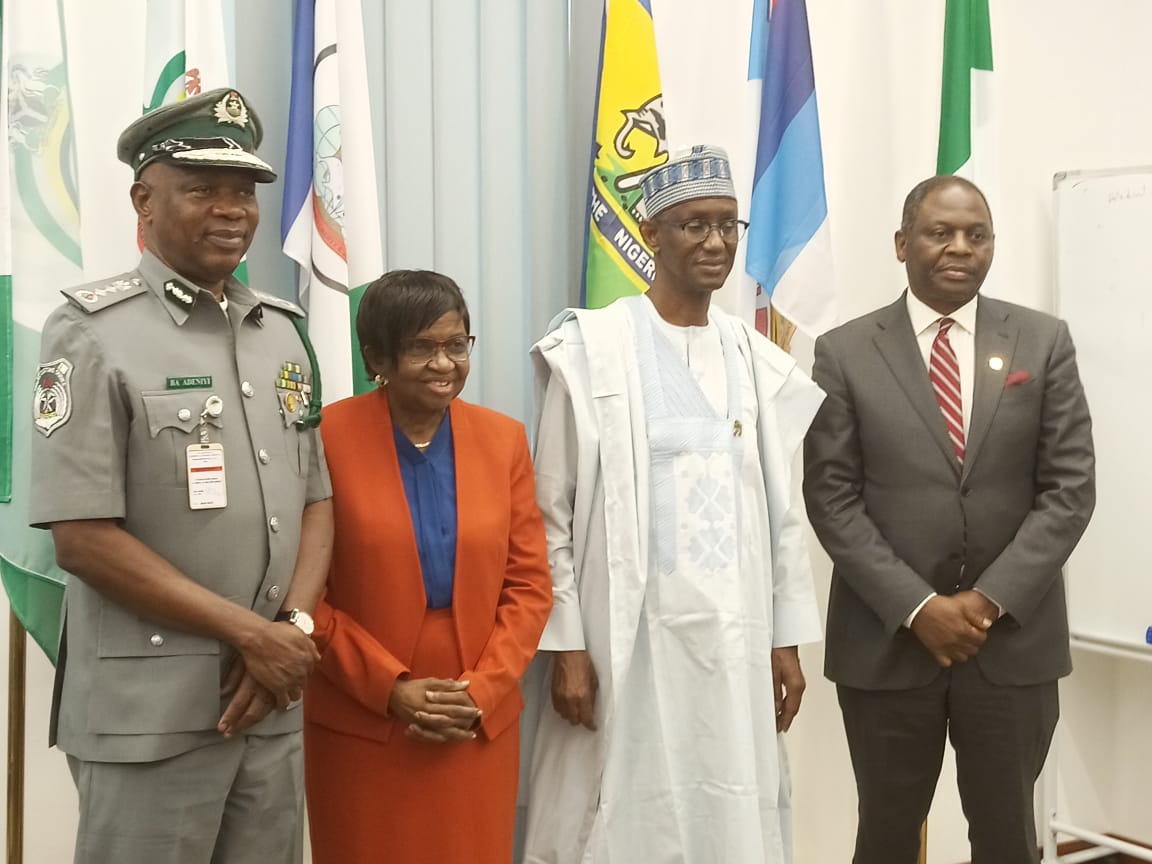By Sumaila Ogbaje
The National Security Adviser (NSA), Malam Nuhu Ribadu, has called for dynamic, proactive, and relevant strategies to effectively counter the threats posed by the activities of extremist groups.
Ribadu made the call at the Pre-Review Workshop for the Policy Framework and National Action Plan for Preventing and Countering Violent Extremism in Nigeria, held on Monday in Abuja.
Ribadu was represented by his Senior Special Assistant, Hajiya Idayat Hassan, at the workshop organised by the National Counter Terrorism Centre (NCTC), in collaboration with its foreign partners.
He said that Nigeria, like many nations, faced the devastating consequences of violent extremism including loss of lives, destruction of communities, and erosion of the social fabric of the nation.
According to him, these effects serve as stark reminders of the urgent need for a comprehensive and effective strategy to counter these threats and provide actionable solutions.
“However, the fight against violent extremism is not static; it demands constant vigilance, continuous learning, and a proactive approach to address evolving threats.
“Extremist groups continue to evolve, adapting their tactics and exploiting new technologies and online platforms to spread their ideologies.
“To effectively counter these threats, our strategies must remain dynamic, proactive, and relevant.
“This review also presents an opportunity to critically assess past interventions, identifying successes and areas that require improvement to refine our approaches and incorporate best practices,” he said.
Ribadu said it was essential to align the efforts with national security priorities and international obligations, ensuring that the strategies remain consistent with global standards and contribute to broader regional and international security objectives.
He commended the stakeholders for the inclusive methodology adopted for the review, describing it as transparent and data-driven.
”The broad spectrum of stakeholders engaged spanning government agencies, civil society organisations, academia, religious and community leaders, and international partners reflects our commitment to a whole-of-government and whole-of-society approach to preventing and countering violent extremism.
“Let me state that this review must focus on key areas such as enhancing community resilience, countering online radicalisation, and improving rehabilitation and reintegration programmes.
“Empowering communities to resist radicalisation and addressing the root causes of extremism are critical.
“Similarly, given the increasing use of digital platforms by extremist groups, it is imperative to develop effective strategies to counter online radicalisation, amplify counter-narratives, and enhance digital literacy.
“Rehabilitation and reintegration must also be approached comprehensively, providing former extremists with pathways back into society while addressing community concerns.
“Additionally, there is a need to improve inter-agency coordination to enhance intelligence sharing and operational effectiveness,” he added.
He added that a robust monitoring and evaluation framework would ensure accountability and track progress.
The National Coordinator of NCTC, Maj.-Gen. Adamu Laka, said the review underscored the need to adapt to the ever-changing landscape of extremism, adding that the threats would undoubtedly continue to evolve.
Laka said that responses must remain dynamic, proactive, and effective in countering emerging challenges.
He explained that the workshop would provide an opportunity to evaluate the effectiveness of the framework, identify strengths, and address any gaps.
According to him, the expertise, insights and recommendations of the stakeholders will be invaluable in ensuring that the revised framework is comprehensive, responsive, and reflective of current realities.
“We recognise that this fight cannot be waged in isolation; it requires the concerted efforts of government agencies, civil society organisations, academia, religious leaders, community representatives, and international partners.
“I urge everyone to approach it with an open mind, a spirit of collaboration, and a firm commitment to strengthening our national resilience,” he said.
The EU Ambassador to Nigeria, Gautier Mignot, said that both the EU and Nigeria were members of the Global Counter Terrorism Forum (GCTF).
”The workshop is another excellent example of how efforts between governments, members of the GCTF and organisations inspired by it, can effectively work together in addressing the drivers of violent extremism and terrorism and the factors that enable them, Mignot said.
He said that the emergence of terrorist groups in Northwest Nigeria and other parts of the country underscored the importance to invest further in preventing and fighting the scourge of terrorism.
According to him, the ripple effects are far-reaching, highlighting the urgency of coordinated, innovative responses.
“The EU commends the efforts made by the government of Nigeria to tackle the threat of terrorism both at national and regional level but we are aware that there is need for further work and investments.
“In this context, taking the time to sit down, reflect and consult to update strategies and policies is a very necessary endeavour, especially when it comes to a phenomenon so complex and detrimental like extremism, we know this also in Europe.
“The EU is proud to be supporting Nigeria in these efforts, in particular through a number of interventions to prevent and counter violent extremism working with government, civil society organisations and traditional and religious leaders, but also more broadly,” he said.
Mignot said the EU would launch projects worth 300 million Euros in grants for the Northwest and the Northeast, most affected by extremism.
According to him, this package of projects covers challenges like quality education and skills development with a particular focus on girls and out-of-school children.
“It also covers access to reproductive and adolescent health, support to IDPs and the poorest and most vulnerable in communities affected by insecurity and climate change, by creating economic opportunities.
“In the Lake Chad Basin, in particular, in Nigeria and neighbouring countries, we are supporting the economic recovery, resilience and social cohesion of communities affected by conflict.
“We are also supporting the development of the pastoral economy and the transboundary water management of the basin,” he said . (NAN) (www.nannews.ng)
Edited by Gregg Mmaduakolam/Sadiya Hamza






